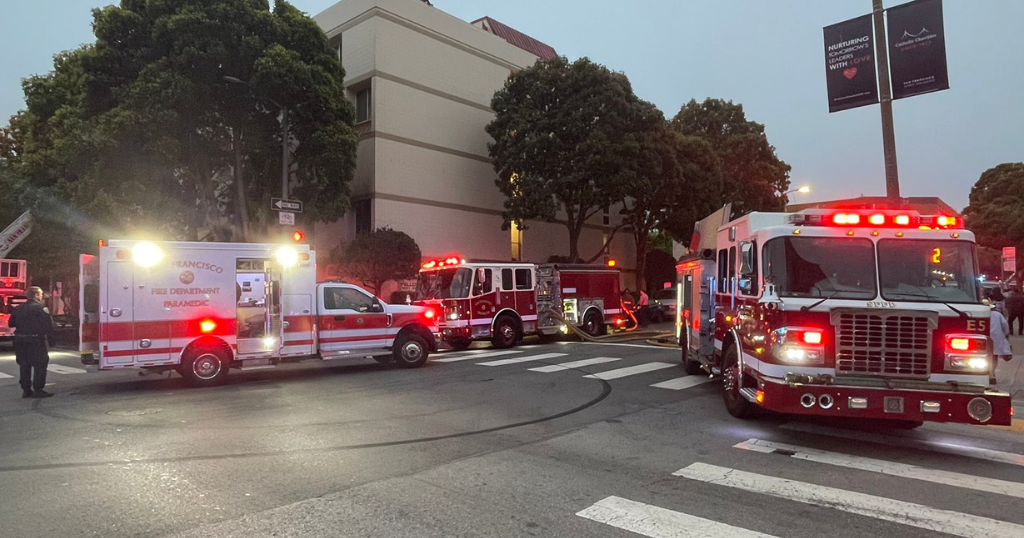Union Pacific, Coalition Opposed To Oakland Howard Terminal Ballpark File Suit Challenging EIR Certification
OAKLAND (BCN) -- The Union Pacific Railroad Company and a coalition of marine, port and transportation interests have filed separate lawsuits challenging the city of Oakland's certification of an environmental impact report (EIR) for the proposed new waterfront ballpark for the Oakland Athletics.
The project is ambitious: it includes a 35,000-seat baseball stadium and event venue at the Howard Terminal site, up to 3,000 new residential units, up to 1,500,000 square feet of new office/commercial uses, 270,000 square feet of retail uses, a 3,500-seat indoor performance venue for events, and 400 hotel rooms.
The project moved a big step closer to reality on March 1, when the Oakland City Council certified a final EIR.
An EIR is a government planning document that must identify and consider the environmental impacts of a proposed project as well as alternatives and mitigation strategies. The EIR has multiple purposes, including helping government officials make better decisions, informing the public of the issues, and promoting accountability.
When a final EIR is certified by the government entity and it issues a "Notice of Determination," it triggers a 30-day period in which affected parties may file suit to challenge the adequacy of the report.
On Friday, before the 30 days expired, the two lawsuits were filed in Alameda County Superior Court. Each seeks to set aside the
City Council's certification of the EIR and send the agencies involved back to the drawing board.
While the suits have slightly different focuses, both broadly attack the EIR and the process that the agencies followed in preparing, noticing, disseminating, amending, and ultimately finalizing the analyses.
Among the many alleged flaws that the challengers raise are the EIR's failure to adequately consider alternatives to the Howard Terminal site, and its alleged failure to assess the impacts of the project at the intended location. Each suit urges the court to find that the government officials involved abused their discretion in certifying the EIR.
Union Pacific operates train lines that service the Port of Oakland and pass near the site of the proposed stadium at ground level.
Noting that the project will cause a "significant increase of congestion in local and regional roadways," UP says that it is concerned that the volume of pedestrian and motor traffic accessing the ballpark will "exacerbate roadway congestion and create significant safety risks for the public," according to a statement.
In its lawsuit, UP says that the EIR failed to give adequate consideration to mitigating the environmental impacts by what it calls "full grade separation" between rail and motor vehicle travel.
A spokesperson for UP explained that in this context, full grade separation means "that the primary access points to Howard Terminal are via an underpass or an overpass that would be built over our railroad tracks, eliminating either vehicle or pedestrian contact with our at-grade (ground) crossings. Specifically, we want grade separated access developed at both the Market St. and MLK Jr. St. access points."
The EIR explored grade separation by having the roadway overpass the train tracks, but ultimately decided to address traffic and congestion through other mitigation strategies.
The UP spokesperson said, "The Oakland A's and the City of Oakland all intend for those two streets to remain open, with at-grade railroad crossings, which is not only dangerous, but would create congestion when trains are either moving or stopped within the crossing for associated switching operations in the railyards."
The coalition lawsuit is led by East Oakland Stadium Alliance, self-described as "a large and diverse group of organizations and members with significant interests in ensuring the continued success and vitality of maritime-related industrial uses, including transportation and union-related interests, in and near the Port of Oakland."
Other named plaintiffs in the suit include Schnitzer Steel Industries, a metal recycling business near the terminal, the International Longshore and Warehouse Union, as well as associations of shipping and trucking industry businesses.
According to the coalition, the project "proposes massive displacement and gentrification of this highly industrialized area."
Among the many deficiencies that the coalition raises is the allegedly inadequate consideration of the option of building the stadium at the site of the A's current home ballpark, the Coliseum.
Many of the coalition's challenges are directed at procedural issues, including its allegation that the city released extensive new information after comments were closed, depriving interested parties of the right to consider and address the new information.
Justin Berton, speaking for Oakland Mayor Libby Schaaf, said the lawsuits were expected.
"The City stands by the integrity of its process and analysis ... this particular EIR is exceedingly rigorous, thorough, transparent, and ensures a waterfront ballpark district will be built with only the highest environmental standards."
© Copyright 2022 CBS Broadcasting Inc. and Bay City News Service. All Rights Reserved. This material may not be published, broadcast, rewritten or redistributed.



